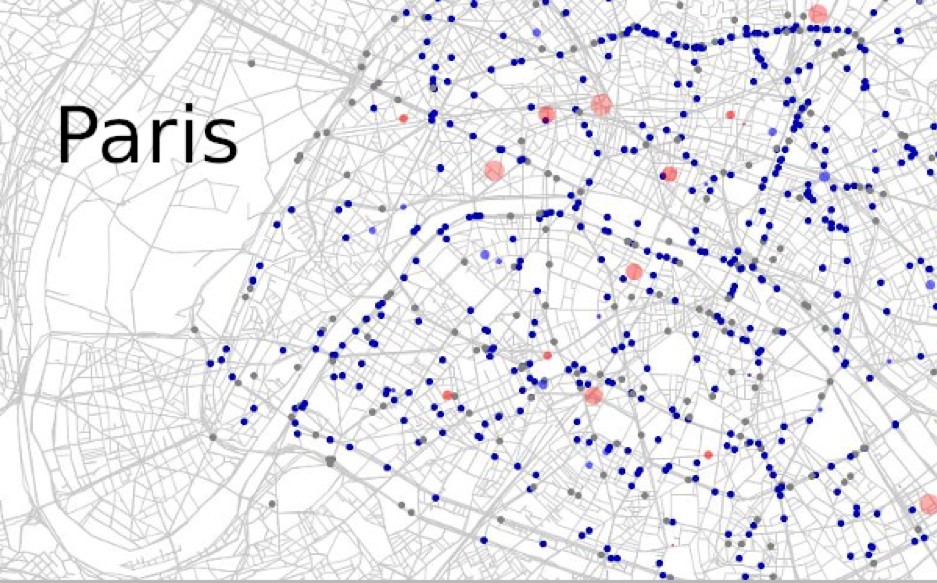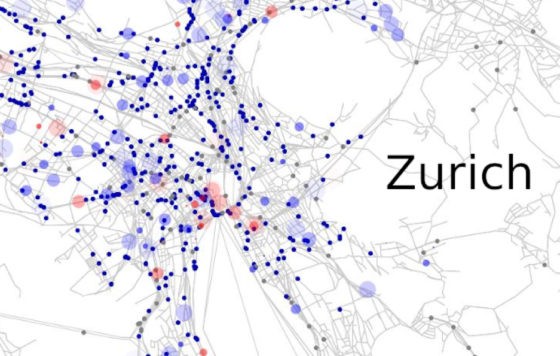
Agent-based models in transportation model individual travelers and their interaction in the transport system on a micro-level. A natural advantage of agent-based models are flexibility and the ability to model emergent behavior. Work at IVT has produced a new software package, eqasim, that drastically simplifies the design of scenarios for agent based models using open data.
Today, more than ever, agent-based models are being used in transport planning due to their ability to realistically represent emerging modes and their operational difficulties. Multi-agent transport simulation (MATSim) is one of those tools. The development of MATsim first began at ETH Zurich over a decade ago, and it has become a widely used and accessible open source agent based modelling framework.
MATSim, as with other agent-based models, requires a population of agents and their behaviours, urban environment and transport options, called a scenario. The construction of such a scenario requires a large number of datasets, such as census data, the road network, public transport schedules and daily plans. These data need to be combined from a range of sources, and new versions and data may be integrated into the model over time. Hence, maintaining the consistency between the raw data and final output is essential.

To this aim, the eqasim framework is designed on top of MATSim to ensure reproducible outcomes for transport modelling, in both academic and applied settings. In addition to the scenario generation tools, the eqasim framework allows for behaviorally rich and service-responsive simulations of large-scale daily mobility patterns based on discrete choice theory. This is in contrast to the traditional utility-maximisation approach in MATSim and, most importantly, allows for the integration of mode choice models into the scenario.
The eqasim framework has already been applied successfully across a range of projects, both at IVT and through international collaboration, to study the welfare impacts of mobility-as-a-service combining car-sharing, bike-sharing, and ride-hailing [1,2]. Furthermore, it has been used to assess the impact of future Automated Mobility on Demand (AMoD) services in Zurich [3] and Paris [4] and to investigate the prospects of Urban Air Mobility [5].
It is freely available online.
Sebastian Hörl received his MSc in Complex Adaptive System from Chalmers University of Technology in 2016 and is pursuing his PhD in Transportation at the Institute for Transport Planning and Systems at ETH Zurich. His research focuses on reproducible development of agent-based transport simulations with rich traveller behaviour and the analysis and control of future Automated Mobility on Demand systems.
Miloš Balać received his MSc in Electrical Engineering from EPFL in 2012 and his PhD from ETH Zurich at the Institute for Transport Planning and Systems. Currently he works as a Postdoctoral Researcher at ETH Zurich. His research focuses on modelling emergent mobility solutions and optimization of transportation systems.